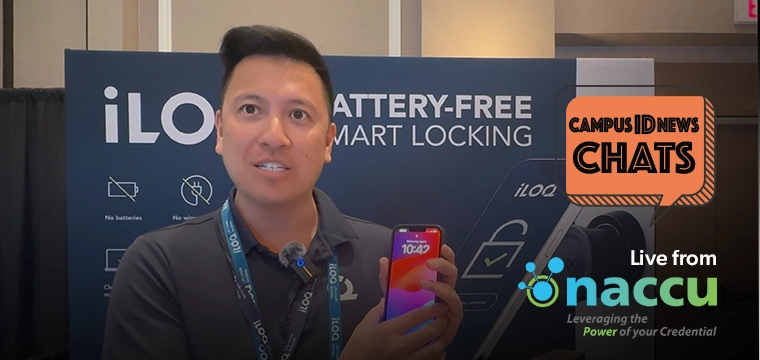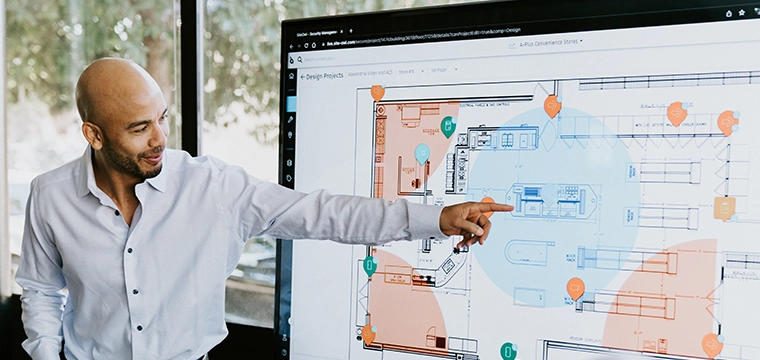Solves residence hall lockouts from lost cards, saves 30,000+ hours of staff time
Washington State University (WSU) has transformed how students regain access to their residence halls when they’ve lost their campus card. A network of self-service kiosks designed to issue temporary cards provides a way to solve late-night access problems and ease the associated burden on staff.
“Our temporary campus card system started originally as a 24/7 self-service system for students to help them get into their res halls when we're not staffing them 24/7 with RAs,” explains Aly Heinrich, Manager of WSU’s CougarCard program. “Before the kiosks, campus staff were fielding calls at all hours from students who had lost their cards or were locked out with no RA available to help.”
By providing 24/7 access, WSU significantly reduces the need for RA staffing hours, eliminating an estimated 33,000 hours and the associate payroll.
Currently, there are kiosks in seven of the university’s 14 residence halls, with plans to expand to every hall. This will eliminate the challenge of students having to access another residence hall to get a temporary card to use in their own hall.
The kiosks issue simple, low-cost prox cards.
Students log in with their campus credentials, and the system deactivates their regular card while the temporary card is active. Each temporary card is valid for three days and comes with a $20 charge – the same amount as the normal replacement card fee. If the card is returned within two weeks, the fee is automatically refunded.
When finished, students return the card to the kiosk, which immediately makes it available for another user. WSU has about 2,000 cards in circulation, constantly being checked out and recycled.
“It gets used constantly. I checked our temp card data, and a hundred cards have been taken out since I left four days ago.”
“Just today, I checked our temp card data, and a hundred cards have been taken out since I left four days ago,” she says. “It gets used constantly.”
The benefits go beyond student convenience. By providing 24/7 access, WSU significantly reduces the need for RA staffing hours. Heinrich estimates this saves an estimated 33,600 hours of work per year, which even at minimum wage is a significant sum.
Looking ahead, she sees continued value for the system, even as mobile credentials gain popularity. As she explains, there’s still going to be times when students don’t have their phone handy and this can give them a quick, easy way to get back into their room.
To listen to the full interview, click the image at the top of this page.
TRANSCRIPT
Our temporary campus card system started originally as a 24-7 self-service system for students to help them get into their res halls when we're not staffing them 24-7 with RAs.
The problem that it was solving was our office was getting calls in the middle of the night asking, hey, my card's not working, I can't get in my dorm room, what am I supposed to do? There's no RA here.
So we installed temporary card kiosks in seven of our 14 res halls and now students have a 24-7 solution to get into their dorms.
We currently have seven kiosks in seven of our 14 res halls, but we are working on installing a kiosk in every single residence hall on campus.
We run into some students not being able to get into a different residence hall to get into a kiosk, so we're going to eliminate that problem and help them get into their res halls whenever they need.
Currently we are producing only prox cards in the temporary card kiosks.
It's cheap. It's simple.
There's not a huge security concern because they already have to log in with their own campus credentials to get a temporary card.
That temporary card only lasts for three days. It will deactivate their entire campus card account. That way they either have to come get a new campus card or they have to get a new temporary card.
When they're done with the card, the kiosks have an acceptor so they can just log into the kiosk and return their card, and they can actually reactivate their current card as well.
When a student checks out a temporary card, it puts a $20 charge on their account. Our card replacement fee is $20, but if they return that card within a two week period, the refund is automatically applied.
We use Meridian kiosks. They are mostly a hospitality food service kiosk industry, but they've produced a really fantastic piece of hardware for us.
Originally when we were using these kiosks also as card replacement systems, inside of the kiosks we had a card printer, we had a full desktop computer and everything.
Now our kiosk just has the card acceptor, the card dispenser, and the computer in there to manage the computer software system.
Just today actually, I checked our temp card data while I had a break and a hundred extra cards have been taken out since I left four days ago, so it gets used constantly.
We have about 2,000 temporary cards in production that are in recycling mode, so as soon as a student returns a temporary card to a kiosk, it's automatically removed from their account and another student can go and take that and apply it to their account instead.
Our feedback has been awesome.
We thought this might be a cool thing 15 years ago and my team has seen students asking for it more.
Even this year with a student over winter break not being able to get a temporary card because she didn't live in a hall with a kiosk – we heard that and we're going to put a kiosk in every hall now.
It started mostly as student service, but it also really helps our housing department not have to pay their RAs 12 hours a day.
Imagine 14 residence halls, one RA 12 hours a day, that's 14 times 12, times your minimum wage, we saved 33,600 hours of RA work in one year.
So multiply that by your minimum wage and that's how much money we saved.
I was presenting this project to NACCU at this conference and I let the audience know that honestly with all this talk of mobile credential, I get a little nervous that this temporary card system might die off.
It might not be needed if everybody has their phone, but they actually reassured me.
They were like, how many times do you leave your phone in your car when you're packing in your groceries. You get up to your door with your arms full of groceries and you don't have your phone, they would have to drop all their groceries, go all the way back to their car and find their phone.
Now there's a kiosk right down the hall so they can just put their groceries down for a second, go get a card, get in their room, put away the groceries and go get their phone.
As much as I was concerned about it at the beginning of this week, the folks here have really helped me feel a lot better about it, and they showed a lot of interest as well.
So it's been really cool to see the value that this provides for our students and that there is a future with it as well.




